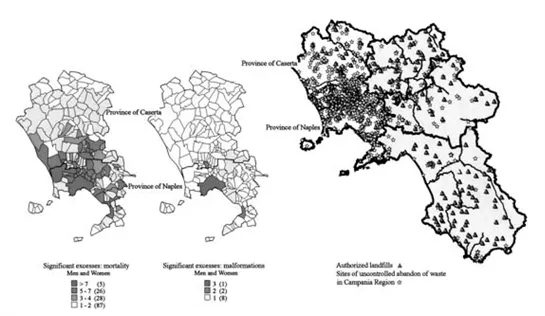The Political Ecology of Campania Waste Conflicts: geographies of contamination and grassroots movements’ remaking of socionatures
Research Student: Salvatore Paolo De Rosa
Duration: 2012 – 2016
Supervisor: Guy Baeten
Assistant supervisor: Marco Armiero (KTL Environmental Humanities Lab of Stockholm); Erik Swyngedouw (University of Manchester)
The image of huge piles of trash engulfing the spaces of social life in the Southern Italian region of Campania, and in its capital city Napoli, hit the headlines of global news several times in recent years. The hasty narrative of the media, in Italy and elsewhere, pointed to institutional failure, cultural backwardness and mafia infiltration as the main causes of this eco-social catastrophe. The same mainstream explanations also suggested that local communities protesting and opposing government plans to deal with trash were part of the problem. But what if these accounts misrepresented reality and ultimately failed in depicting the complexity of the issue?
This research project focuses on the Campania waste conflicts from the perspective of political ecology in order to debunk reductionist explanations of the waste crisis and to assess critically the eco-political performances of grassroots movements emerged in response to an environment turned toxic. Two main questions lead the research effort. On the one hand, I seek to understand the power relations and the socio-ecological processes implicated in the production of “geographies of contamination”, asking how spaces of waste accumulation are produced and why they cause conflicts. On the other, I engage in an ethnography of grassroots mobilizations for investigating their imaginaries and practices of the society-nature nexus, asking why and how activists redefine and remake territory, community and knowledge throughout environmental conflicts.
Theoretically, the research frames the production of urban environments as a socionatural process in which multifarious cultural, political and economic rationalities struggle for the making and remaking of different life-worlds, in a field of unequal power relations. This perspective helps overcoming abstract dichotomies between society and nature, shedding light on their mutually constituting processes.
The research will tackle the Campania waste conflicts through a historical-geographical case study analysis, in connection with the larger context of ongoing Italian and global environmental struggles. The importance of scrutinizing these conflicts is both epistemological and political. The research will contribute to scholarships on the political ecology of contamination and commodification of nature. Moreover, to investigate the grassroots movements’ reshaping of public participation and civic engagement with the making of socionatures will clarify how environmental conflicts can evolve in struggles for autonomy and cultural difference, contributing to the project of thinking and building more egalitarian life worlds.
This project is carried out within ENTITLE- European Network for Political Ecology, an EU-funded Initial Training Network under the Marie Curie action of FP7.


